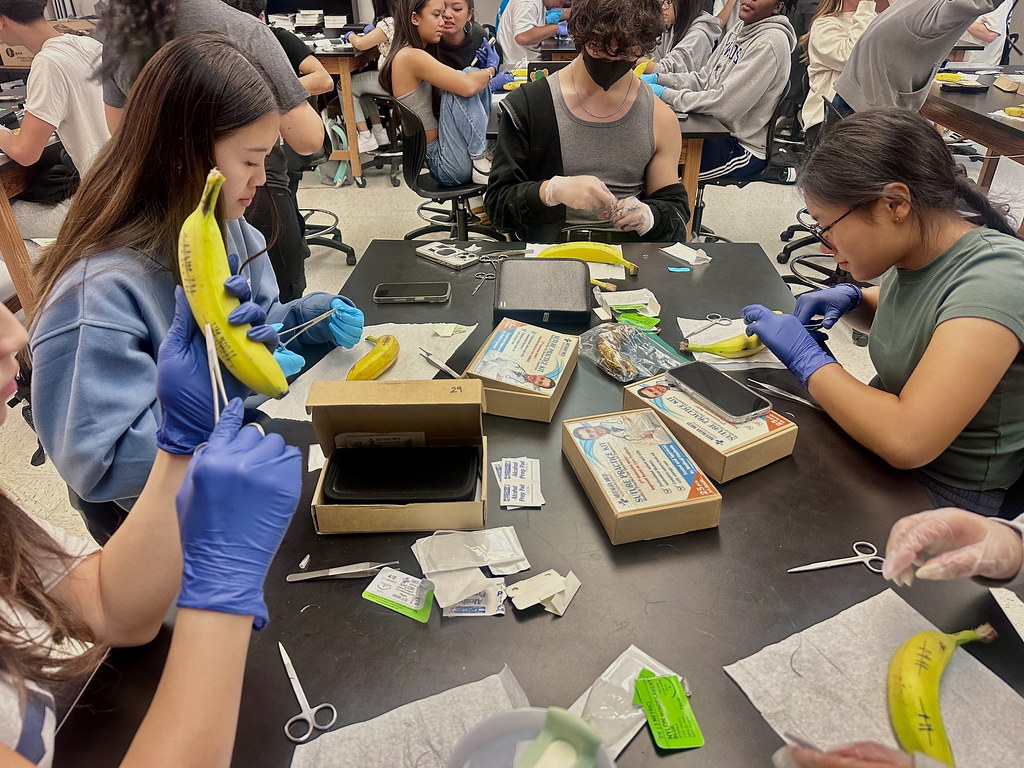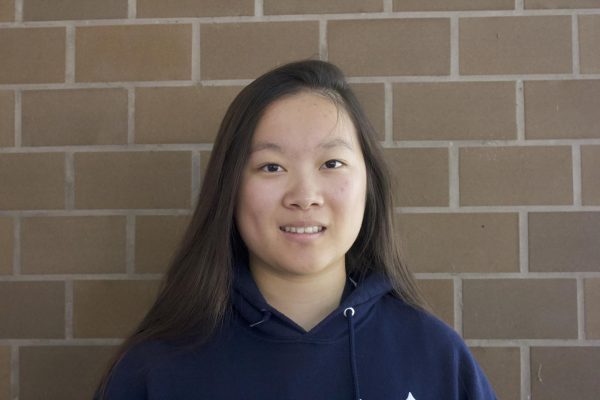On Feb. 6, an Instagram post advertising a new SAT Prep study group was posted by the official account of DVHS Academic Leadership, a course specifically targeted towards teaching students how to tutor.
The SAT Prep study group was organized by DVHS Senior and fellow Academic Leadership tutor Rohan Reddy.
In the following days after the Instagram post was posted, flyers with the same advertisement were hung up on different walls at DVHS, including near the library and within individual classrooms.
Reddy conceived the idea last semester during Academic Leadership’s semester review, an end-of-semester activity that revolves around tutors reflecting on their tutoring performance.
“I felt like a lot of us in AL[Academic Leadership] kind of felt we often didn’t have work to do or we didn’t have as many people asking for skills that we were good at,” Reddy said. “Sometimes, days aren’t as busy.”
In search of an activity that could both take time and was also familiar to most tutors, Reddy ended up coming up with an SAT Prep study group. Shortly after coming up with the idea, Reddy approached John Parks, the teacher for DVHS’ Academic Leadership.
After listening to Reddy’s idea, Parks agreed to create the study group.
With permission granted, Reddy got to work, thinking of the steps needed to form the study group and how the study group would work.
Compared to a curriculum with a specific framework, Reddy leans towards a more relaxed form of tutoring that centers around short review sessions that focus mainly on the tutee’s personal weaknesses and mistakes that they made on the test.
“In general, humans are very bad at noticing their own mistakes,” Reddy said. “You could approach the same problem and take a million practice tests the same way and you’ll keep making the same mistake.”
By focusing on an individual tutee’s mistakes and weak points, Reddy believes that the tutee will be able to increase their score at a faster rate, despite doing fewer practice problems overall.
“The main focus of AL’s SAT prep is it’s not going to be a comprehensive course,” Reddy said. “We don’t have the time nor do we have the resources to do a full-on course from beginning to finish.”
Aside from resources and time, Reddy also believes that a curriculum may turn away potential tutees who join the study group late or only need to work on a specific portion of the test, an outcome that Reddy does not want.
Starting in the spring of 2024, all SAT tests administered in the US will be going digital. Being on a computer, the test is able to adjust questions and utilize adaptive testing, specifically a type of adaptive testing known as multistage adaptive testing. This differs from the past paper SAT test with strict, unchangeable sets of questions.
While Reddy has never taken the SAT digitally, he states that he has taken this change into account for his study group.
“What they’re doing right now is they’re using predictive mapping to find your skill level in a shorter amount of time.” Reddy said. “Now, people think that this makes the test easier, but really all it’s doing is it’s evaluating your skill level earlier.”
Utilizing multistage adaptive testing, each section of the digital SAT is composed of two modules, allowing the results of the first module to affect the questions given in the second module.
Though College Board states that the difficulty of the questions in the second module will not put individual test-takers at a disadvantage, College Board addressed that test-takers should still be careful about the number of questions that they get wrong, similar to if they were taking the SAT on paper.
For the study group, this means that the preparation strategy for the digital SAT wouldn’t be much different from if the SAT was on paper.
“The core of the test hasn’t really changed, especially for reading and writing.” Reddy said.
Recently, Reddy found two other Academic Leadership tutors to help him with the study group and is working to train them to support others with the SAT.
“I had [the tutors] identify what online sources say how to approach the problems to first understand why people are getting problems wrong,” Reddy explained. “I kind of trained them to understand how people get to…incorrect answers.”
Currently, Reddy is working on marketing the SAT study group by putting flyers up around the school. Aside from Instagram and physical flyers, Reddy is also considering posting the flyer on Schoology and also word of mouth.
“We don’t want to pressure anyone,” Reddy said. “It’s mainly if people are interested in getting SAT prep, then they come to us.”





